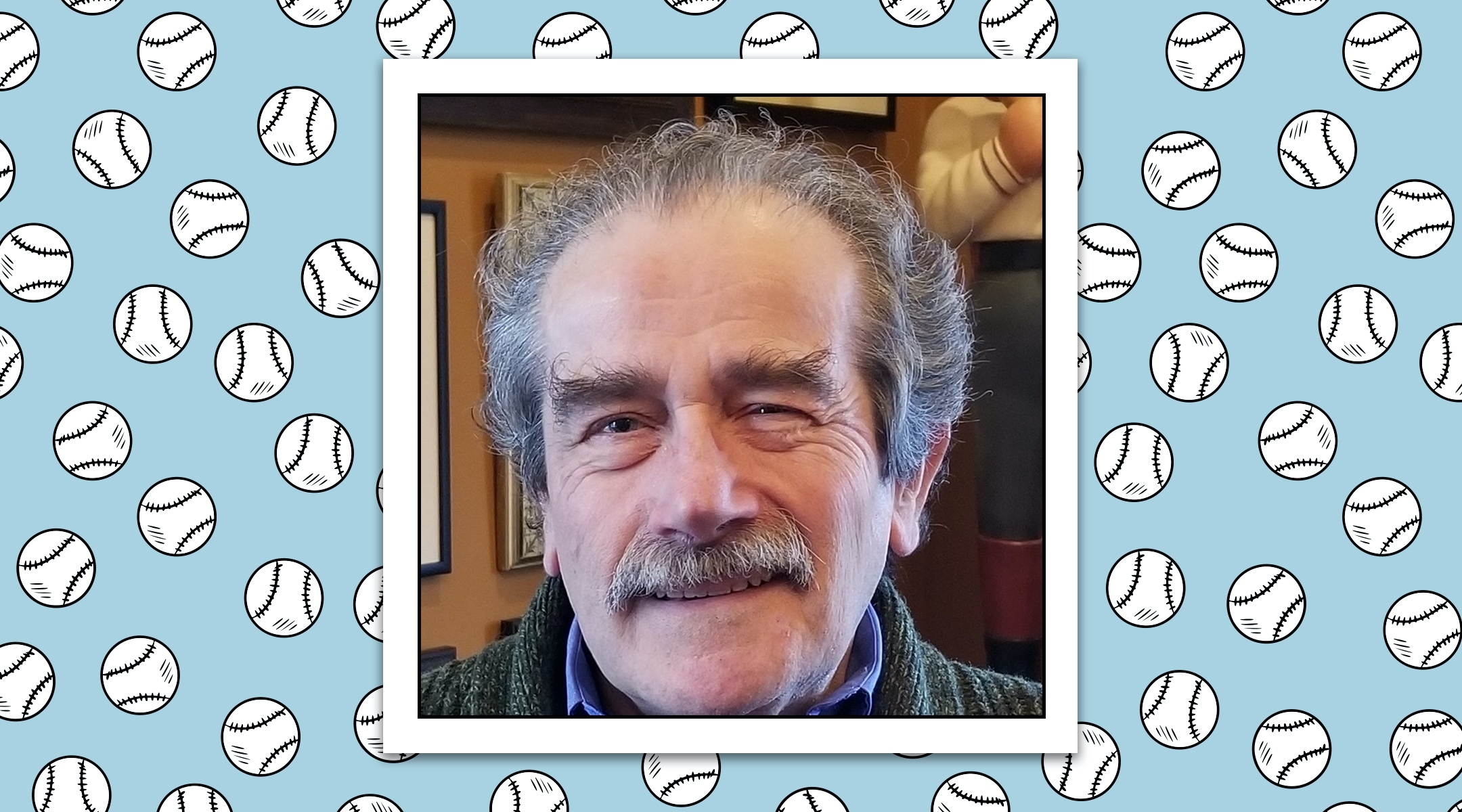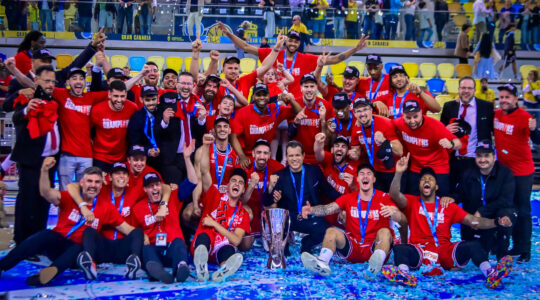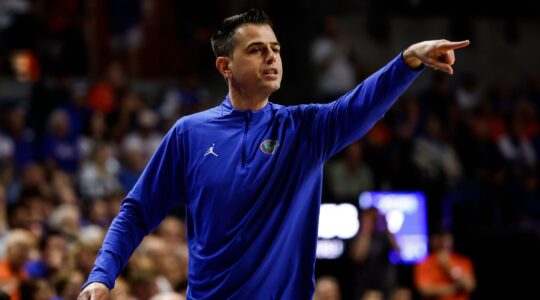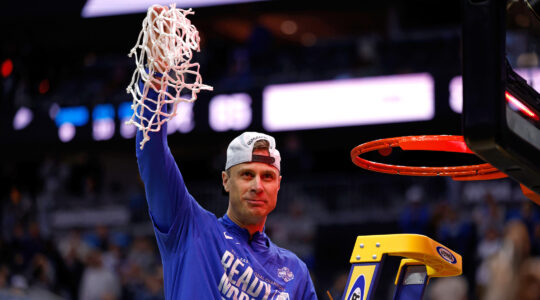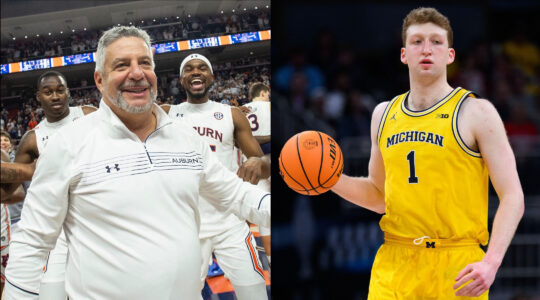(JTA) — From Hank Greenberg to Sandy Koufax to Alex Bregman, Jews and baseball go way back, to the 19th century. It’s not just players and fans — the participation even extends to the role of official baseball historian of Major League Baseball.
The first man to hold the title, the legendary Chicago sportswriter Jerome Holtzman, was Jewish, and an inductee to the International Jewish Sports Hall of Fame. Holtzman died in 2008, and in early 2011, the official baseball historian role went to John Thorn, a prolific historian and author. Thorn, the son of Holocaust survivors who was born in a displaced persons camp, remains in the role today.
His works include “Baseball in the Garden of Eden: The Secret History of the Early Game,” a study of the often controversial question of how and when, exactly, baseball was invented. He also consulted on “Chasing Dreams: Baseball and Becoming American,” an exhibition on Jews and baseball that originated at the National Museum of American Jewish History in Philadelphia and is now available in “virtual” form.
This season, which started in July rather than April because of the coronavirus pandemic, will be of particular interest to historians. There have been whole weeks of games postponed in the wake of infections and some players have opted out of the season over COVID fears. Among the wacky, thousands of cardboard cutouts with fans’ faces have filled the stands.
Thorn, 73, spoke with the Jewish Telegraphic Agency earlier this season about the most unusual of seasons, his work and the connection between the American game and American Jews.
This interview has been edited and condensed for clarity.
JTA: Tell me a bit about the role Judaism has played in your life.
Thorn: Judaism has played a great part in my life, in terms of my birth, and childhood and circumstances, and as I have written elsewhere, just when you think that maybe you’re not so Jewish, the world will remind you. So, as I’ve become older, it’s clear that Judaism is a central part of my life and my worldview, though I am no longer religious.
I went to an Orthodox Hebrew school, and after my bar mitzvah, have scarcely been in a synagogue since. So my appetite for organized religion of any sort is slim, and no greater for Judaism. I will say that while Wikipedia has me as being born in Germany, this always irritates me because I was born in the American-occupied sector of Germany, in a displaced persons camp. My parents are Holocaust survivors, and we had three visas we applied for — Australia, Argentina and the U.S. — and were prepared to take whichever came first, and that turned to be the United States. So I came here at age 2 1/2.
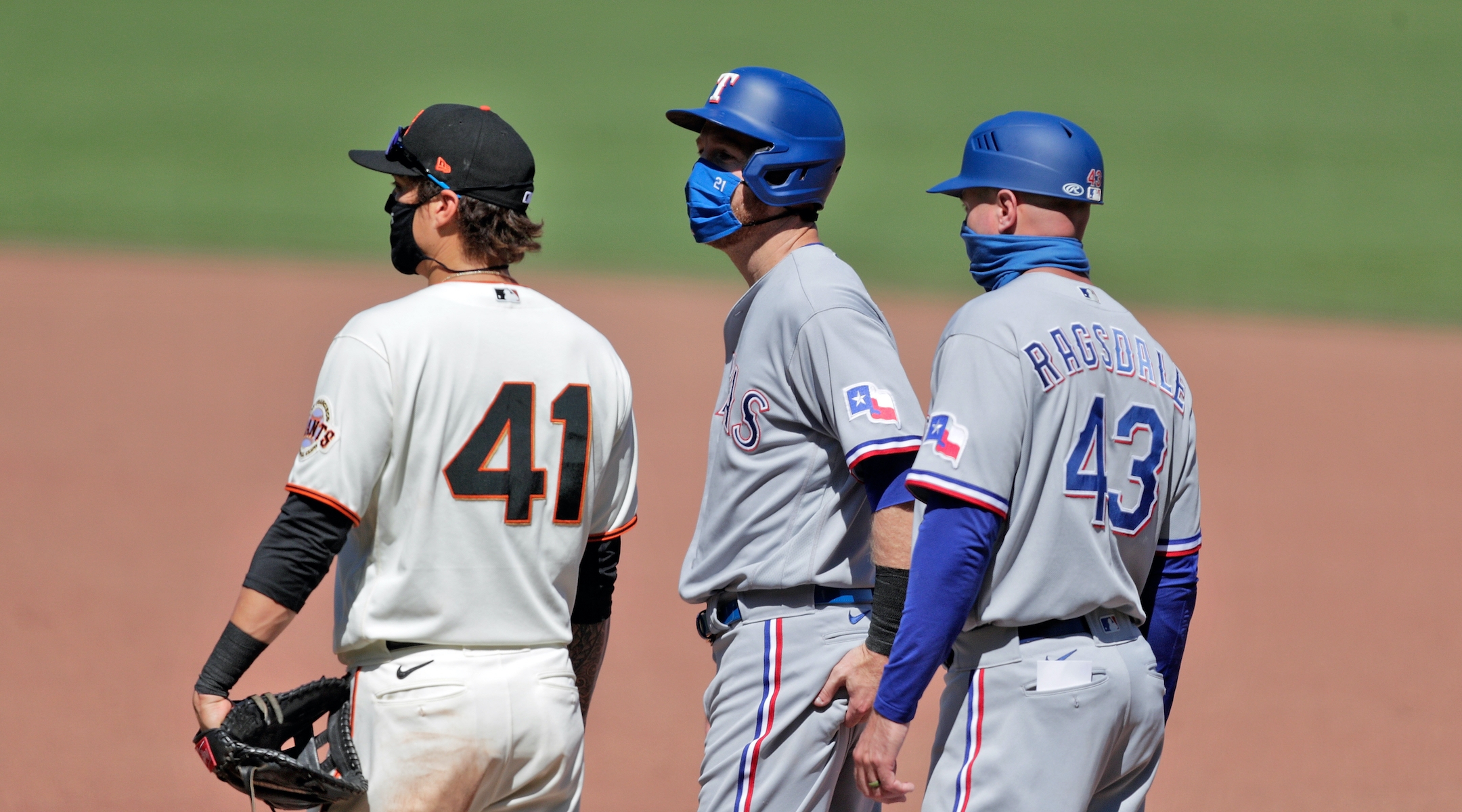
Players wearing masks at first base at a game at Oracle Park in San Francisco, Aug. 2, 2020. (Carlos Avila Gonzalez/The San Francisco Chronicle via Getty Images)
How did it come about that you became Major League Baseball’s official historian?
Well, at age 63 I guess I became this overnight sensation, courtesy of the commissioner, who appointed me to this post. But I had been writing baseball books since 1974 and had created the official encyclopedia for Major League Baseball, which was called “Total Baseball.” It went through eight editions, 1989-2004. So I was not exactly an unknown quantity, either to the commissioner or to the baseball community.
But this position of baseball historian — and I’m now in my 10th year — has been well-suited to me, I enjoy it. And I will be happy to continue with it for as long as I continue to show up.
What does the job entail? What do you do on a day-to-day basis?
Availability, and other duties as assigned, is the most important part. So I respond not only to the Office of the Commissioner, but also to the promotions department, to the marketing department, to legal, to general services and an extraordinary level of contact with the media, sometimes on deadline, who need the answer to an historical question, or need me to provide historical perspective on a current controversy. I also write a blog for Major League Baseball called Our Game, which has been going for 10 years now, and I contribute to that at least once a week and often more.
I know you’ve done a lot of work on the origins of baseball, and I think there was a commission you were on related to that. I’ve been to Cooperstown, and I actually lived in Hoboken for a time [which have both been mentioned as the birthplace of the game.] What’s the short answer of who invented baseball, and where was it invented?
The short answer is no one invented baseball and it wasn’t invented anywhere. You may have [been to] Cooperstown, and you may have lived in Hoboken, and both of those places have laid claim to a bogus invention, and it’s thus a bogus claim.
Baseball was played in other places, including in New York City, prior to any record of its being played in Hoboken, or being played in Cooperstown. So we have dated baseball in literature to, at least, 1791 in North America, and in all likelihood it was played in New England in the 1730s.
There’s a large swath of Jewish baseball fans who pay close attention to Jewish baseball players and keep tabs on up-and-coming Jewish prospects. Have you had much of an interaction with this subculture, and is that something you pay attention to?
Yes, some. There’s a set of Jewish Major League baseball cards, there are people who argue about who was the first Jew in Major League Baseball, who was the first Jew of the amateur era to play baseball. So I’ve gotten caught up in such things, as I was the chief curatorial consultant to the National Museum for American Jewish History exhibition called “Chasing Dreams.”
The key to that exhibition, I believe, and its subsequent success and its touring success, has been to identify Jews as not unique as outsiders in baseball, and being brothers under the skin with African-Americans and Latinos in particular, but earlier, Italians and Irish and other nationalities, [including] Native American.
When you were the curatorial consultant, what did that entail exactly?
I was the baseball expert. I interacted with other consultants on behalf of the museum, helped secure artifacts, helped to position the exhibition and its companion book.
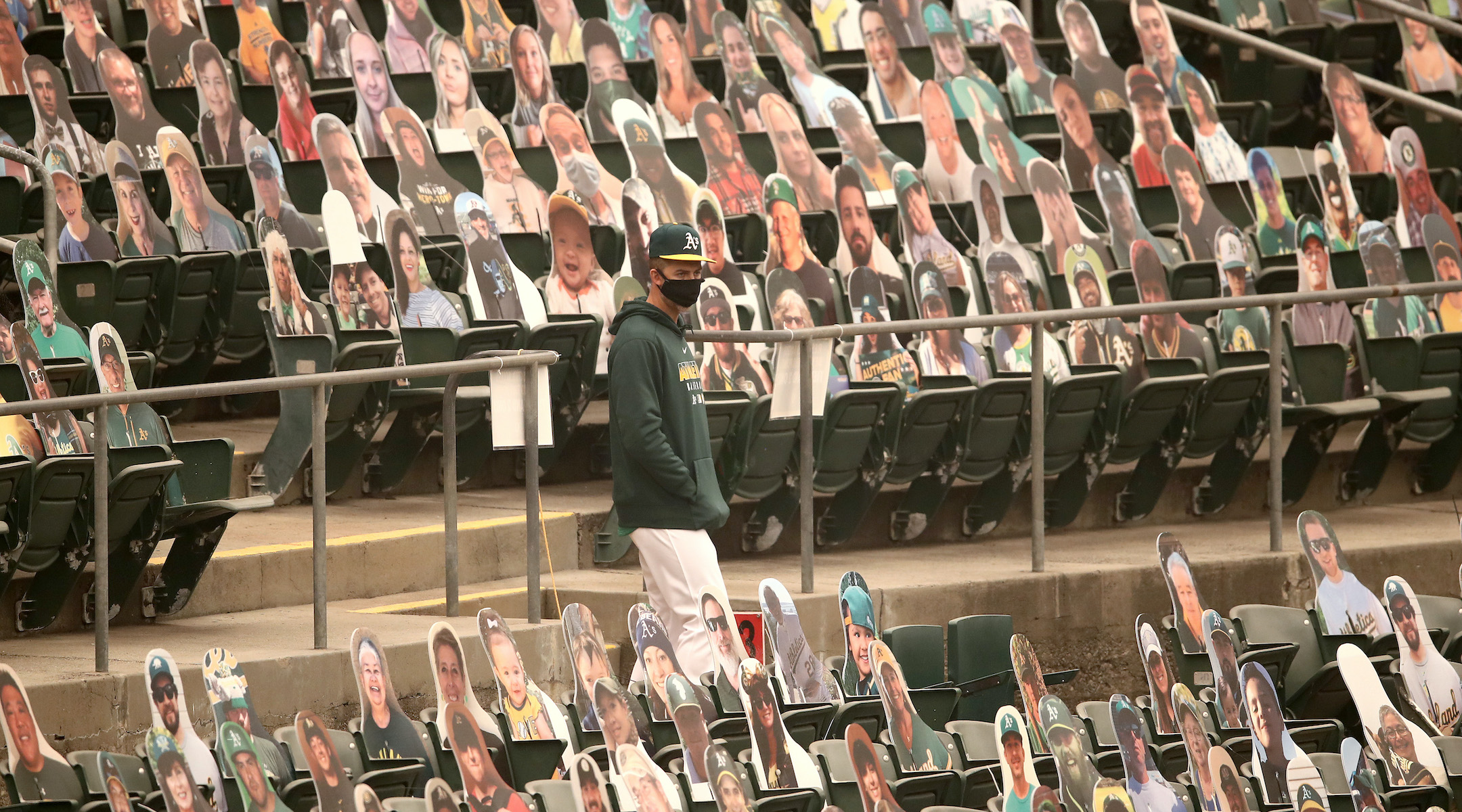
Mike Minor of the Oakland Athletics walks through the stands that are filled with cardboard cutouts during a game against the Houston Astros at RingCentral Coliseum in Oakland, Sept. 10, 2020. The cutouts have become a fixture for most teams this season. (Ezra Shaw/Getty Images)
Turning to the current baseball season, obviously there’s a lot about it that’s completely unprecedented, from the pandemic to how short it is to the lack of fans. What stands out to you most about this year, and what do you think future historians will say about it?
That this was a year unlike any other. The pandemic of 1918 and 1919 barely affected baseball. They were able to get through two regular seasons, and didn’t miss a World Series, and no player at the Major League Baseball level died, although one umpire did.
The shortened season, the delayed season, the possibility of statistical anomalies — all of this must be viewed by subsequent generations with historical perspective. The mere placing of an asterisk alongside somebody’s record, how do you view it? Does the asterisk help you with anything? My view is that it doesn’t.
What’s something about baseball, or baseball history, that most fans think they know but is actually wrong?
Well, for starters, that it was invented anywhere, and at any particular time. [Early baseball reporter] Henry Chadwick had the right line, echoing Harriet Beecher Stowe: He said “baseball had no father — it was like Topsy, it just grew,” referring to the character Topsy in “Uncle Tom’s Cabin.”
For a hundred years or so, the National Association of Professional Baseball Players was regarded as the first major league, even though it lasted only from 1871 through ’75. When the MacMillan Baseball Encyclopedia of 1969 came out, there was the creation of a special baseball records committee to review the status of all of the variant or challenging major leagues, besides the two extant ones, the National League and the American. So, the National Association, because of its erratic scheduling and procedures, and gambling, and drunkenness and a variety of moral and practical failings, was demoted as a major league. And Major League Baseball was redefined as having begun on Feb. 2, 1876, with the founding of the National League in New York City.
What other leagues have there been that have been classified as major or considered as major? The American Association, The Union Association, The Players League, the Federal League, the American League, of course, which survives. But we have never given consideration to the Negro Leagues. And this seems to me a possibly fruitful area for research.
I know you’re an historian, but let’s talk about baseball’s future. How do you feel about the future of the game? Do you think baseball’s going in a good direction and is as popular as it should be?
I think baseball’s in a momentary period of crisis, but that is true of all sports because we have to make do without spectators, we have to create cardboard cutouts in the stands and artificial noises, it’s very very peculiar. So I think the future of baseball, and any other sports, ought not to be judged by the events of 2020.
The aging demographics of baseball fans is certainly a concern, and the shifting allegiances of younger fans is also a concern for me because the allegiance is not so much to the team in your locality, but to a team of fantasy players, or players on whom you placed bets, and you have devised your own drafts and your own leagues and your own game, and what you’re checking in the morning is not the box score of the Mets or the Yankees, but rather the box score of those players on your draft roster.
JTA has documented Jewish history in real-time for over a century. Keep our journalism strong by joining us in supporting independent, award-winning reporting.
